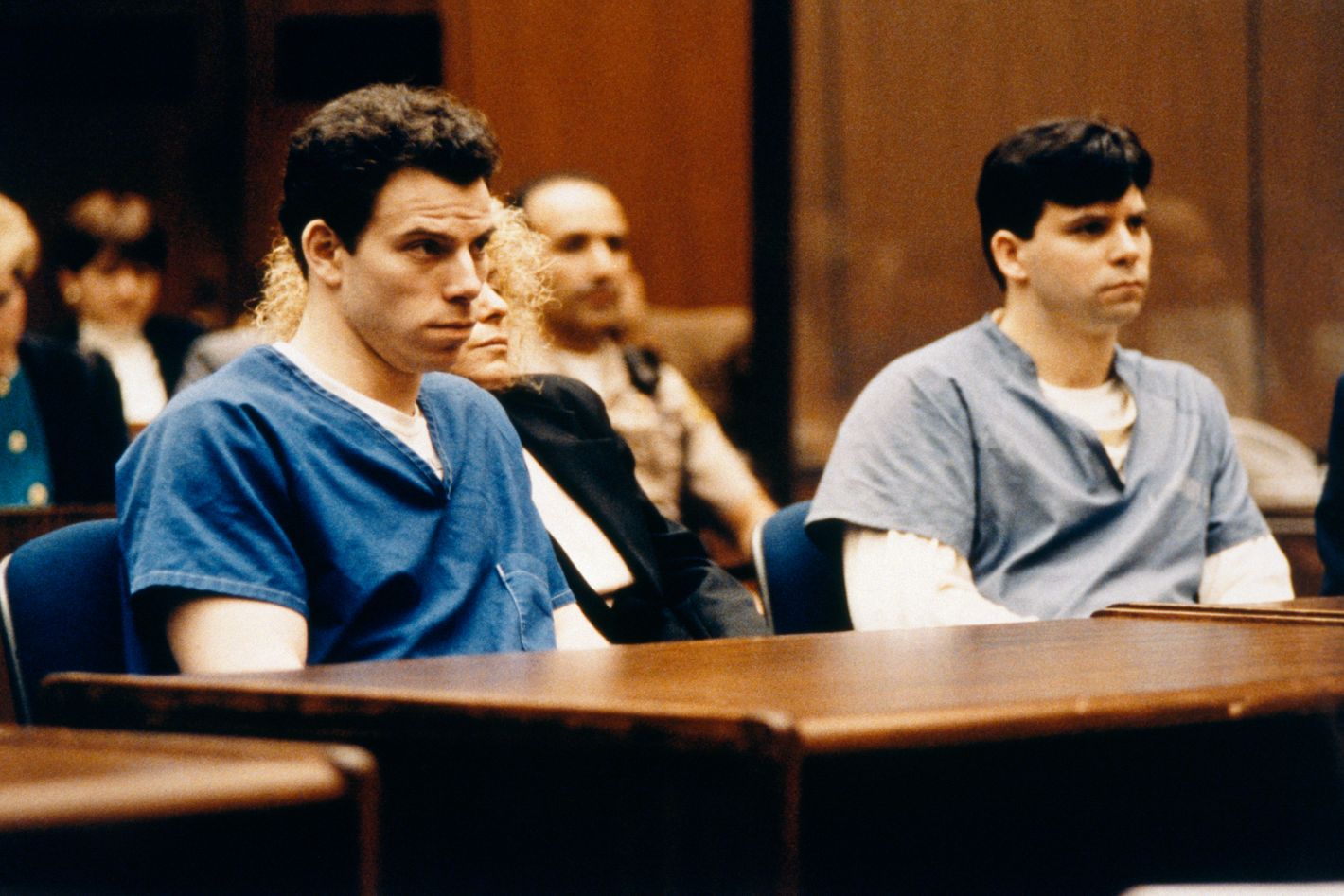
Lyle and Eric Menendez, the brothers convicted of murdering their parents in their Beverly Hills mansion in 1989 when they were 21 and 18, were sentenced to life without the possibility of parole. But in a dramatic turn of events, the brothers, now in their mid-50s, could be freed. This fall, a hit docudrama and docuseries brought renewed focus to their claims that their father had sexually abused them. In October, the Los Angeles district attorney George Gascon asked a judge to impose a sentence that would make them immediately eligible for parole, invoking a new California law that allows for such an extraordinary intervention.
But with the November election came another reversal in fortune. Gascon, who ran on a progressive platform of reforming the criminal justice system, was tossed out by voters in favor of Nathan Hochman, a Republican-turned-independent who describes himself as part of the “hard middle.” Hochman, who takes office on December 2, nine days before the Menendez case was scheduled to be considered by the court, has pledged to conduct his own review.
That is ominous news for the Menendez brothers: Hochman has the power to pull Gascon’s recommendation and demand that they remain behind bars. It is equally ominous for any Los Angeles defendant convicted of a violent crime who has served decades in prison, has demonstrated extensive rehabilitation, and is seeking relief under this same law. The legal standard is broad and vague: any prisoner in California can be resentenced and released if the prosecution decides it is “in the interests of justice.” That includes those on death row or, as in the case of the Menendez brothers, people sentenced to die in prison, often when they were quite young. Under Gascon’s tenure, more than 300 people have been resentenced.
With Hochman in charge, the odds of anyone getting this kind of second chance in California’s most populous county will dim considerably. Since the resentencing law was enacted, it has been used sparingly if at all by self-described tough-on-crime district attorneys. Now progressive prosecutors are on the verge of extinction. The backlash started in 2022 with the recall of Chesa Boudin, San Francisco’s liberal DA and continued through this election with the recall of the Alameda County DA. These prosecutors rejected by voters fed up with smash and grab robberies, open air drug dealing, and a feeling that too much tolerance had bred rampant disorder. (Diana Becton, the district attorney of Contra Costa County, was elected on a progressive platform, but has had her head down ever since. In September, a group representing crime victims launched a recall campaign against her.)
California is not an outlier. Across the country, voters rejected progressive candidates running for top prosecutor positions in blue or purple districts in major cities in Oregon, Arizona, and Florida. In Pennsylvania, a Republican easily bested a Democrat who ran on his “strong progressive credentials” for attorney general, becoming the most powerful law enforcement official in the state. The progressive prosecutor movement that began less than ten years ago with the election of bold reformers pledging to reduce incarceration by rolling back many of the tough-on-crime policies of the 1980s and 1990s is on the wane.
As the director of a criminal and racial justice law school clinic, my students, staff attorneys, and I have lived through these seismic shifts in real time. Partnerships we forged in 2020 and 2023 with progressive prosecutors in San Francisco and Alameda have led to the release of scores of people convicted of murder and other violent crimes who have demonstrated that after serving decades behind bars they no longer pose a risk to the public. One case at a time, we have been able to convince judges and prosecutors to replace their impossibly long sentences with something less: sometimes immediate release, sometimes just a chance to go before the parole board. The people we have recommended for relief who have come home have been reunited with their families, gotten jobs, and devoted themselves to helping other people, including at risk youth.
The Menendez brothers stand out because of their wealth, privilege, and fame. But behind them are countless others who also committed heinous crimes when they were young, suffered extreme abuse, and have a proven track record of rehabilitation. The hard truth is that we will never make a dent in the problem of mass incarceration until we release violent offenders who fall into this category. In California, they make up 50 percent of a prison population that exceeds 94,000 people; three out of every ten are serving life sentences. This is also an aging population: 16 percent are 55 years old or older. One year of incarceration in a California prison costs more than $130,000. It is a waste: of taxpayer dollars and of human potential.
It is my hope that, in what I call the Prosecutor 2.0 Era, there will be a greater openness to giving prisoners like the Menendez brothers a chance at freedom. “Hard middle” prosecutors like Hochman would be wrong to reflexively turn their backs both on this population and on the new laws that the legislature passed to reward the hard work they have put into remaking their lives and to save the taxpayers money. In the meantime, I hold out hope of convincing at least some of them that when rehabilitated prisoners are deprived of a hard-won second chance, we all lose.